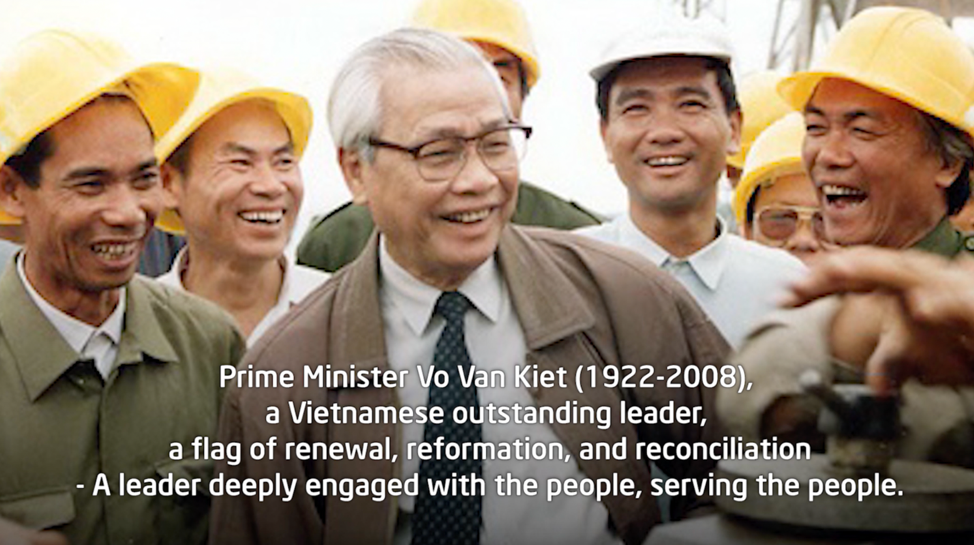Governor Michael Dukakis, Chair of the Boston Global Forum and Harvard professor Thomas Patterson
Harvard University Loeb House, November 23, 2022
Of Southeast Asia’s leaders of the past half-century, no leader has demonstrated more foresight and courage than Vietnam’s former Prime Minister Vo Van Kiet who died in 2008. The year 2022 marks the 100th anniversary of his birth – a fitting moment to recognize his contributions to peace, security, reconciliation, and inclusive economic and political development.
A revolutionary who fought against the French and then the Americans, Vo Van Kiet after the war was named Communist Party chief in Ho Chi Minh City, where he saw that Vietnam’s top-down economy was failing to address the severe economic hardship that followed in the war’s wake. He was also alarmed by the government’s harsh treatment of its South Vietnamese adversaries, quietly defying official orders by providing them opportunities to contribute to the vitalization of the former Saigon.
It was an extraordinary act, personally as well as politically. His wife and two children had been killed by South Vietnamese forces.
His openness to new ideas and new ways of doing things stayed with him as he rose through the ranks of the country’s leadership, becoming Prime Minister in 1991. “Being proud of the past,” he said, “does not mean that we cling to it like a cloak to cover our present shortcomings.”
He championed Vietnam’s opening to the outside world through the adoption of liberal economic policies. It was a cause he continued to pursue after leaving office in 1997 when more conservative leaders came to power in Vietnam. During his time in high office, he presided over a period of dramatic economic growth and foreign investment that is called “Vietnam’s economic miracle.”
As Prime Minister, he fostered the creation of normal diplomatic relations with the United States, ushering in what is now a decades-long friendship between the two nations. He refused to be called a statesman, preferring instead to be seen as a partner and friend of other nations whose purpose was to foster peace and mutual understanding.
He advocated for national reconciliation, not only between north and south Vietnam but between the Vietnamese in Vietnam and those who had fled the country after the Vietnam War. He instructed his subordinates to act boldly in the face of those who thought differently, saying “If you go to jail, I will take care of you”
He also recognized the need to bring the Vietnamese people more fully into their governing, saying “the nation belongs to us, the state belongs to us, Vietnam belongs to us, not to communists or any religious group or faction.”
He was, foremost, a man of the people. He respected people from all ranks of life, deeply engaged with them, saw it his duty to serve them, delighted in listening to them, trusted their judgment.
In turn, the Vietnamese people bestowed on him an honorary name – Mr. Sau Dan. It means, “The Prime Minister in the hearts of the people.”
Ever a visionary, one of Vo Van Kiet’s last public acts was to urge the Vietnamese and their government to do everything possible to address climate change, seeing it as an existential threat to Vietnam and the world.
Vo Van Kiet was a resolute leader who dared to think about the world as it could be, not the world as it is.
The Boston Global Forum is honored to recognize Vo Van Kiet and his enduring contributions to peace, security, reconciliation, and inclusive economic and political development.
